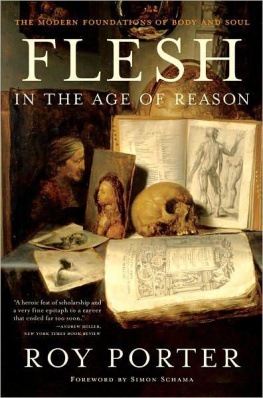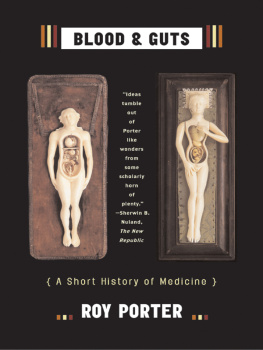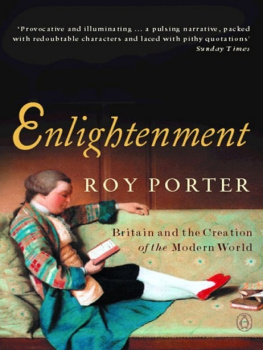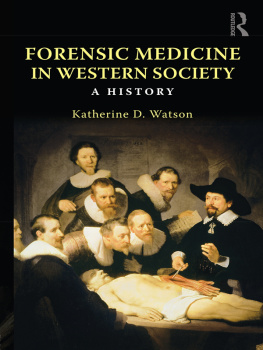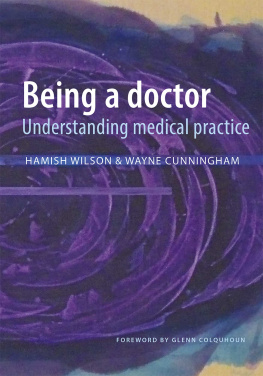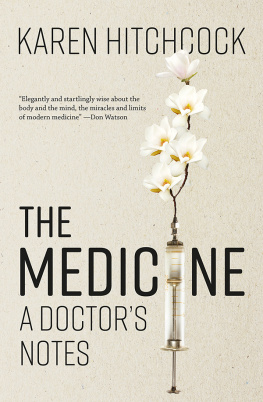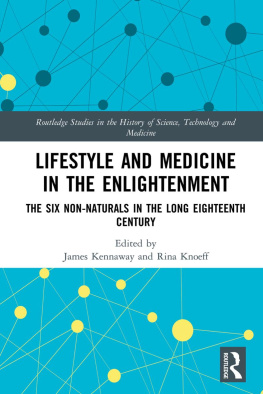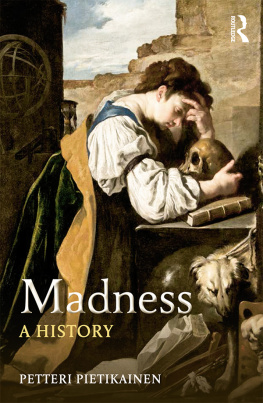ROUTLEDGE LIBRARY EDITIONS: THE HISTORY OF SOCIAL WELFARE
Volume 17
DOCTOR OF SOCIETY
DOCTOR OF SOCIETY
Thomas Beddoes and the Sick Trade in Late-Enlightenment England
ROY PORTER
First published in 1992 by Routledge
This edition first published in 2017
by Routledge
2 Park Square, Milton Park, Abingdon, Oxon OX14 4RN
and by Routledge
711 Third Avenue, New York, NY 10017
Routledge is an imprint of the Taylor & Francis Group, an informa business
1992 Roy Porter
All rights reserved. No part of this book may be reprinted or reproduced or utilised in any form or by any electronic, mechanical, or other means, now known or hereafter invented, including photocopying and recording, or in any information storage or retrieval system, without permission in writing from the publishers.
Trademark notice: Product or corporate names may be trademarks or registered trademarks, and are used only for identification and explanation without intent to infringe.
British Library Cataloguing in Publication Data
A catalogue record for this book is available from the British Library
ISBN: 978-1-138-20330-3 (Set)
ISBN: 978-1-315-45977-6 (Set) (ebk)
ISBN: 978-1-138-69880-2 (Volume 17) (hbk)
ISBN: 978-1-315-51809-1 (Volume 17) (ebk)
Publishers Note
The publisher has gone to great lengths to ensure the quality of this reprint but points out that some imperfections in the original copies may be apparent.
Disclaimer
The publisher has made every effort to trace copyright holders and would welcome correspondence from those they have been unable to trace.
DOCTOR OF SOCIETY
THOMAS BEDDOES AND THE SICK TRADE IN LATE-ENLIGHTENMENT ENGLAND
Roy Porter
First published in 1992
by Routledge
11 New Fetter Lane, London EC4P 4EE
Simultaneously published in the USA and Canada
by Routledge
a division of Routledge, Chapman and Hall Inc.
29 West 35th Street, New York, NY 10001
1992 Roy Porter
Typeset by LaserScript Limited, Mitcham, Surrey Printed and bound in Great Britain by Biddles Ltd, Guildford and Kings Lynn
All rights reserved. No part of this book may be reprinted or reproduced or utilized in any form or by any electronic, mechanical, or other means, now known or hereafter invented, including photocopying and recording, or in any information storage or retrieval system, without permission in writing from the publishers.
British Library Cataloguing in Publication Data
Porter, Roy 1946
Doctor of society: Thomas Beddoes and the sick trade in late enlightenment England.
1. England. Medicine, history. Beddoes, Thomas 17601808
I. Tide II. Series
610.942
Library of Congress Cataloging in Publication Data
Porter, Roy, 1946
Doctor of society: Thomas Beddoes and the sick trade in late enlightenment England/Roy Porter.
p. cm. (The Wellcome Institute series in the history of medicine)
Includes bibliographical reference and index.
1. Beddoes, Thomas, 17601808. 2. Physicians England Bibliography.
3. Medicine England History 18th century. I. Title. II. Series.
[DNLM: 1. Beddoes, Thomas, 17601808. 2. History of Medicine, 18th Cent England. WZ 100 B399P]
R489.B4P67 1991
610.92-dc20
[B]
DNLM/DLC
for Library of Congress 91-3415
CIP
ISBN 0415048508
To Michael Neve
Contents
Why Beddoes?
Surely it is natural that a medical historian specializing in the eighteenth century, fascinated by the social history of medicine, and concerned with getting to grips with the Enlightenment, should find Thomas Beddoes a source of perpetual interest, puzzlement and pleasure.
Putting it in those terms, however, masks the very personal stimuli which have led to my own personal interest. Thanks first and foremost to Michael Neve. It was he who first conveyed to me, in the early 1970s not least on long summer walks through Clifton the excitement and importance of the circle of Bristol radicals of whom Beddoes was the centre, their experiments in living no less than in medicine and science, their commitment to the politics of knowledge and the knowledge of politics. As any reader of this book will see, I have profited more than I can document from his researches, analyses, suggestions, and insights into Beddoes and the Bristolian intellectual environment.
My thanks also to numerous other scholars who have worked on Beddoes and his friends, colleagues, and times. Above all, to Dorothy Stansfield, whose enviable recent biography, Thomas Beddoes M.D. 17601808, Chemist, Physician, Democrat (1984) confirmed my conviction that Beddoes was a quite extraordinary man, raised my knowledge and understanding of Beddoess life to a new pitch, and yet left me believing that there were more, or at least, other things, to be said. But my gratitude extends to many others besides: to Trevor Levere, F.F. Cartwright, W.D.A. Smith and others who have vastly enhanced my grasp of Beddoes the man of science; and to Mary Fissell, who, together with Michael Neve, has illuminated the Bristol medical background.
More recently, I have been grateful for the forebearance of friends and seminar audiences, repeatedly willing to tolerate a colleague who had Beddoes in his bonnet, and was cultivating what must often have seemed to them and probably still does seem a self-indulgent involvement with a bloody-minded and long-winded provincial medicine man, whose importance and interest was somewhat less than he imagined.
Dorothy Porter has sometimes looked askance at my obsession with Beddoes; but her consistent commitment to a demanding, sociologically-informed, theoretically-aware social history of medicine, and her unfailingly astringent criticisms have made this a less sloppy work than it would otherwise have been. In earlier books, we together worked out the general interpretative framework within which this book moves. I hope she will not find it a travesty of some of her views and approaches.
The inspiration has been theirs, the mistakes are mine.
I am further grateful to Gill Davies at Routledge for the encouragement she has given this project. At the Wellcome Institute, Marika Antoniw sat typing with remarkable speed, accuracy and cheerfulness when normal people would have been doing their Christmas shopping; and Andy Foley, gallantly as ever, manned the xerox machine. Jean Runciman was, as always, the perfect copy editor and indexer.
Roy Porter
January 1991
It has been said that a man of genius can discourse on anything.
(Peacock, Gryll Grange)
This book may seem neither fish, flesh, nor foul. It is a study of Thomas Beddoes (17601808), in my view, alongside Erasmus Darwin, the most challenging and original medical man active in England in the era of the French Revolution. But it is not a scholarly biography, an archive-based investigation of his development and doings, his family and friends, his circle and influence, his chequered career and its legacy. Nor is it a day-to-day analysis of Beddoess labours at the bedside and in the laboratory, his projects and achievements in chemistry, mineralogy, geology, physiology, meteorology, and many other -ologies. Nor is it even a systematic survey of the subjects upon which he so prodigally wrote: pedagogics, hygiene, language, philosophy, politics. Readers seeking illumination on these and many other aspects of Beddoess life and works must look elsewhere above all, to Dorothy Stansfields thoroughly researched, and admirably balanced and sympathetic biography, to F.F. Cartwrights older study, and also to a stream of papers that have appeared in recent years, especially those by Trevor Levere.1


